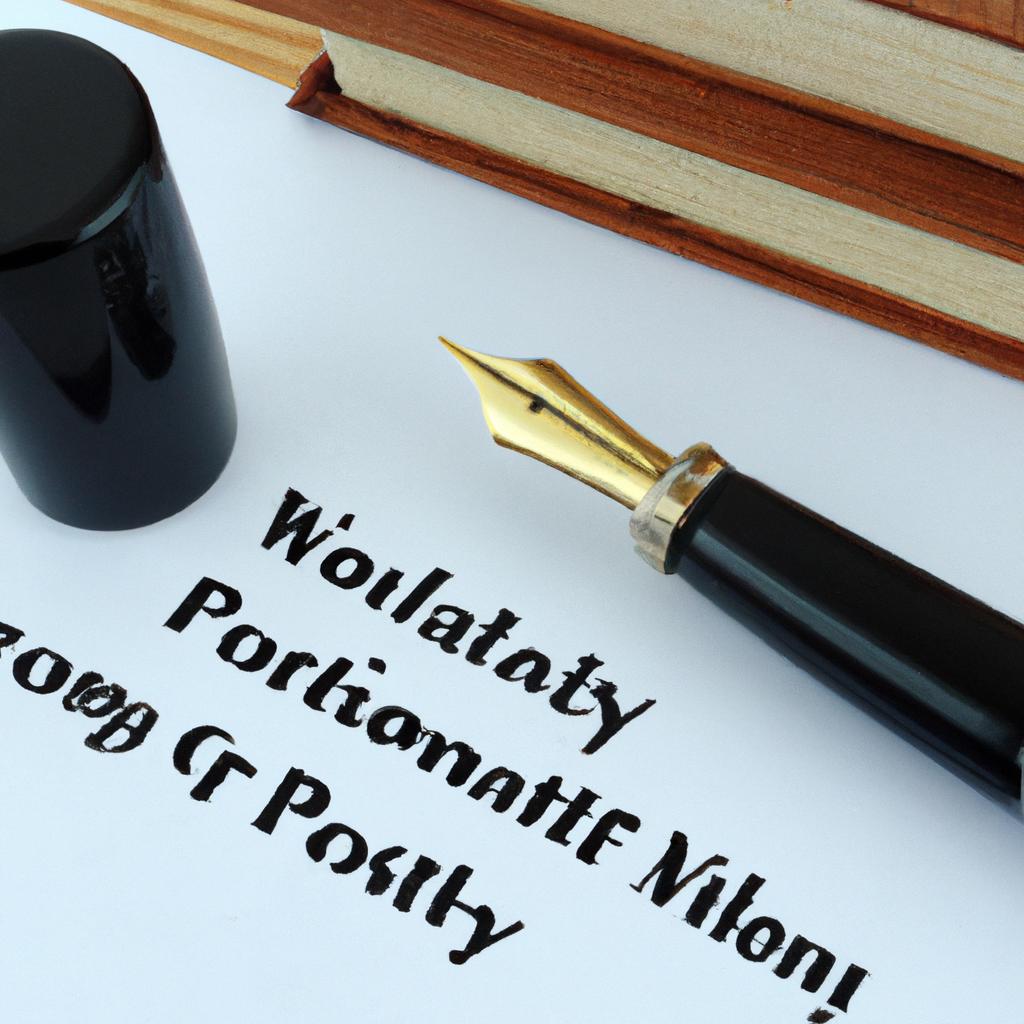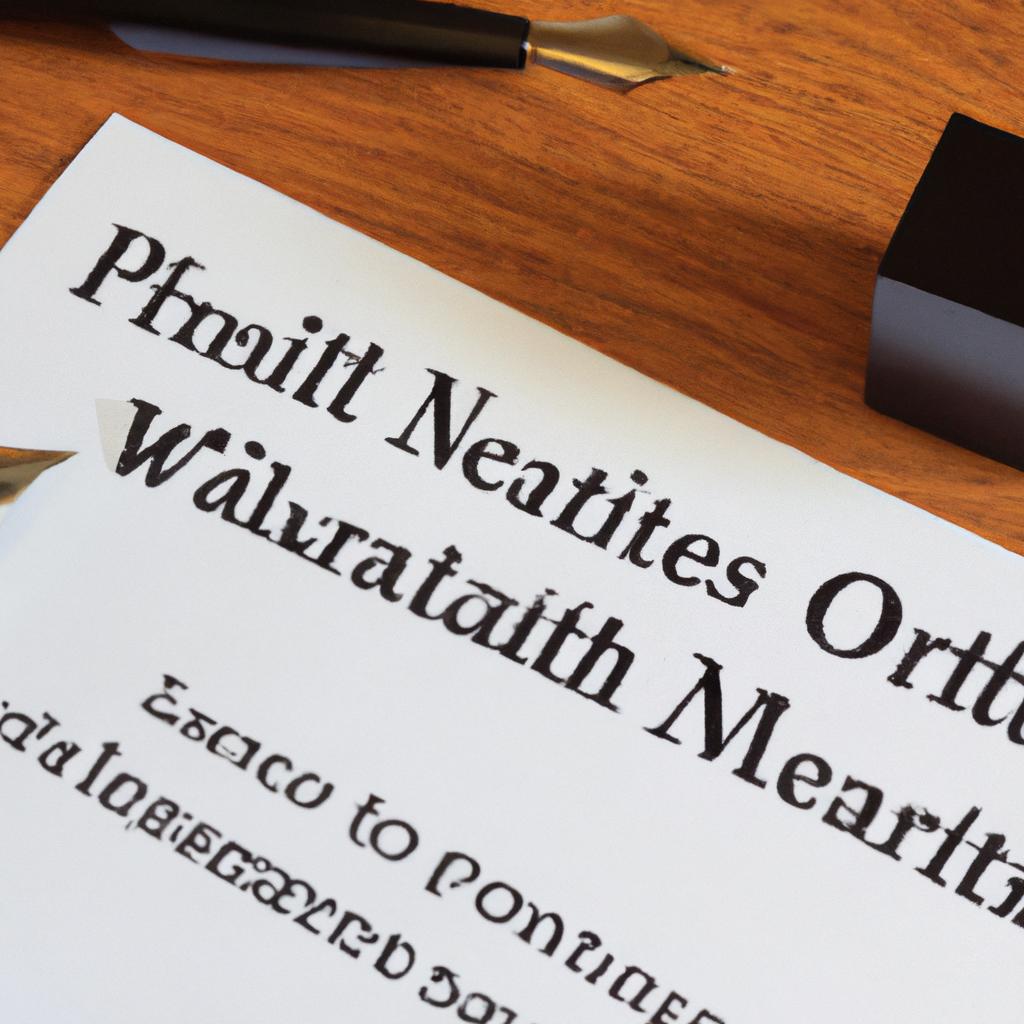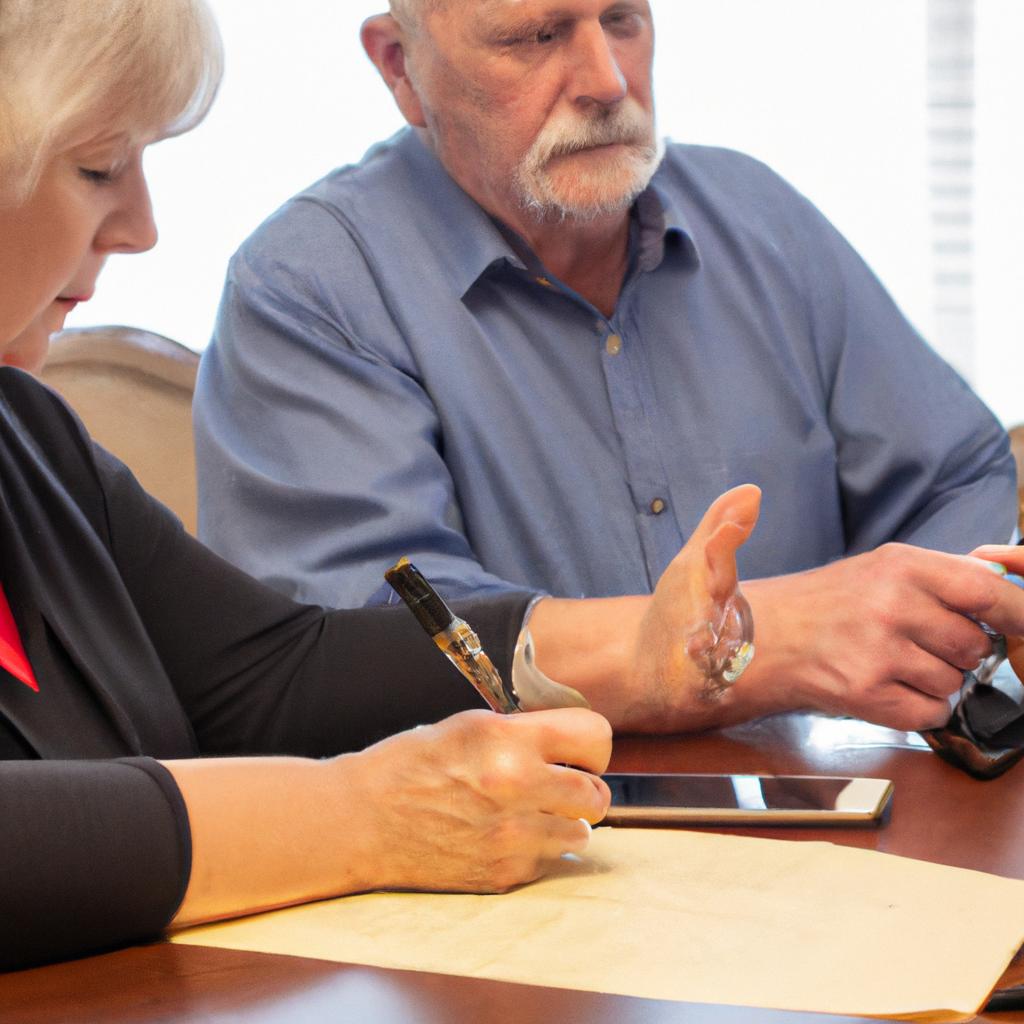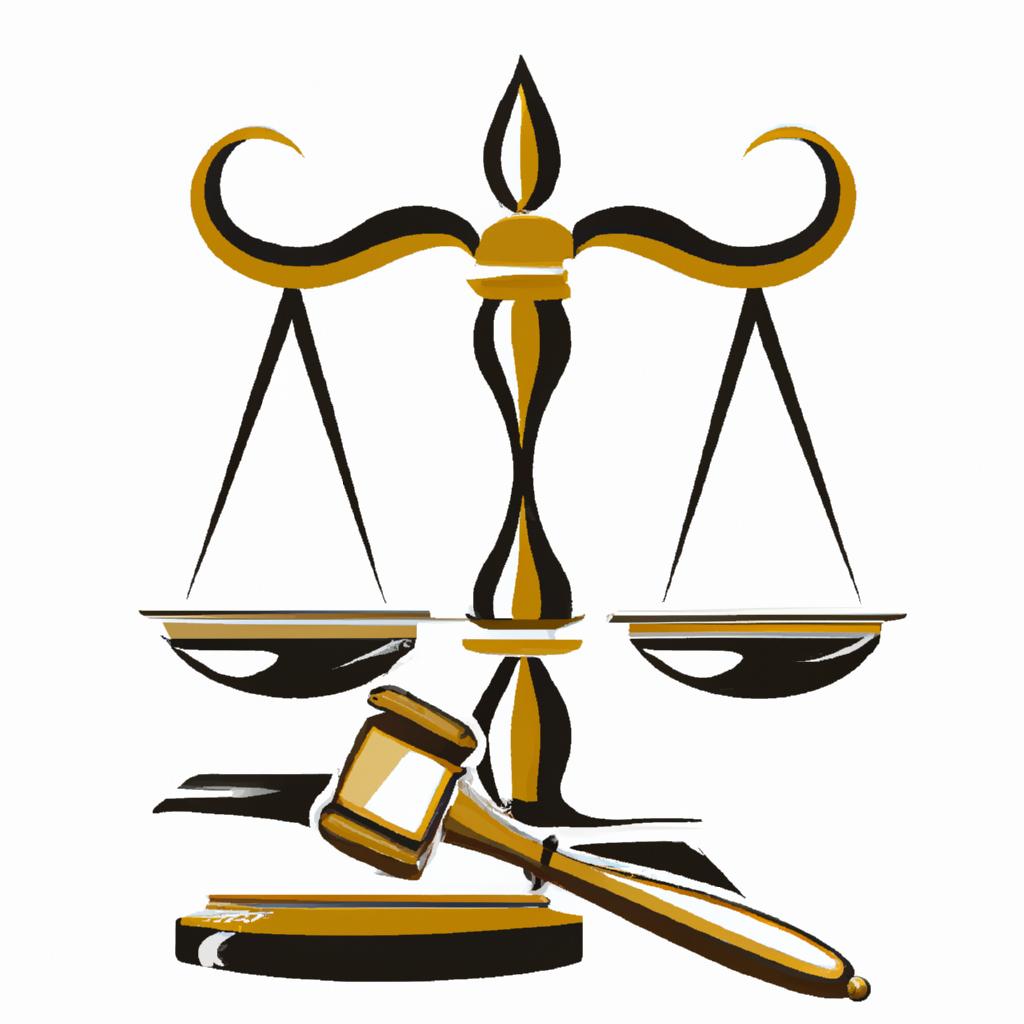In the intricate web of estate planning, the role of a notary often sparks questions and confusion. Can a notary do a Will? This query lingers in the minds of many seeking to secure their assets for the future. As experienced legal practitioners at Morgan Legal Group, located in the bustling heart of New York City, we delve into the complexities of this matter to shed light on the nuanced relationship between notaries and Will execution. Join us as we untangle the intricacies of this legal puzzle and navigate the realm of estate planning with clarity and expertise.
Can a Notary Draft a Will?
When it comes to the intricate world of estate planning, it is crucial to seek the guidance of a knowledgeable professional. One common question that arises is whether a notary can draft a will. While notaries are skilled in witnessing and certifying documents, they may not necessarily have the expertise required for the complexities of drafting a legally valid will.
It is important to remember that a will is a legally binding document that dictates how an individual’s assets are distributed after their passing. To ensure that your wishes are accurately reflected and legally enforceable, it is advisable to consult with an experienced estate planning attorney who can provide personalized guidance and expertise in drafting a comprehensive will that meets all legal requirements.

Understanding the Role of a Notary Public in Will Creation
In the process of creating a will, a notary public plays a crucial role in ensuring the validity and legality of the document. Not only can a notary public witness the signing of a will, but they can also administer oaths and affirmations, authenticate the identity of the testator, and certify the execution of the will. By having a notary public present during the creation of a will, it adds an extra layer of security and credibility to the document.
Furthermore, a notary public can help prevent any potential challenges to the validity of the will in the future by ensuring that all necessary legal requirements are met during the signing process. By working with a knowledgeable notary public, individuals can have peace of mind knowing that their will is properly executed and will hold up in court if necessary. Overall, the role of a notary public in will creation is invaluable in guaranteeing that a person’s final wishes are legally binding and accurately documented.

Limitations and Risks of Using a Notary for Will Preparation
When considering using a notary for will preparation, it is important to understand the limitations and risks associated with this choice. While a notary can help in the execution of a will document, there are certain drawbacks to relying solely on a notary for the preparation of a will.
One of the main limitations is that a notary is not trained or licensed to provide legal advice. This means that they may not be able to offer guidance on complex legal issues or ensure that the will is drafted in a way that accurately reflects the intentions of the individual. Additionally, notaries may not have the expertise to address potential conflicts or challenges that could arise after the individual’s passing. It is important to consult with an experienced estate planning attorney to ensure that your will is properly prepared and legally sound.

Consulting a Legal Professional for Estate Planning Needs
When it comes to estate planning, many individuals often wonder whether a notary can draft a will. While a notary public is authorized to witness the signing of legal documents, including wills, they are not trained legal professionals. Consulting a legal professional, such as an experienced estate planning attorney, is essential to ensure that your will is properly drafted and executed according to state laws.
Working with a legal professional for your estate planning needs can provide you with the necessary expertise and guidance to create a comprehensive and legally binding will. An attorney can help you navigate through complex legal procedures, avoid potential pitfalls, and ensure that your final wishes are carried out effectively. By seeking the assistance of a skilled estate planning attorney, you can gain peace of mind knowing that your assets and loved ones are protected for the future.
Q&A
Q: Can a notary do a will?
A: While notaries are skilled professionals in witnessing and authenticating legal documents, in most cases they are not able to draft or notarize wills.
Q: What is the role of a notary in the creation of a will?
A: A notary may be involved in certifying the identity of the testator and witnesses, but they cannot provide legal advice or drafting services for the will itself.
Q: Are there any exceptions to this rule?
A: Some states allow notaries who are also licensed attorneys to prepare and notarize wills, but the rules vary by jurisdiction.
Q: Why is it important to have a will prepared by a qualified professional?
A: A will is a legally binding document that determines how your assets will be distributed after your death. Having a will prepared by a qualified attorney ensures that your wishes are properly documented and legally enforceable.
Q: Can a notary provide guidance on the process of creating a will?
A: While notaries may not be able to draft wills, they can help guide you through the process and provide information on how to properly execute and notarize a will according to state laws.
In Conclusion
In conclusion, while notaries play a crucial role in legal documents, they are not typically able to draft or notarize wills. If you are looking to create a will, it is important to consult with a qualified attorney to ensure that your wishes are properly documented and legally sound. Remember, proper planning now can help provide peace of mind for both you and your loved ones in the future. Thank you for reading!
 Can a Notary Do a Will: What You Need to Know
Can a Notary Do a Will: What You Need to Know
When it comes to planning for the future, creating a will is an essential task. It allows you to specify how your assets and property will be distributed after your passing, ensuring that your loved ones are taken care of and your wishes are followed. However, there is often confusion about who is qualified to create a will. Many people wonder, can a notary do a will? In this article, we will explore whether or not a notary can act as a will creator and the advantages of utilizing their services.
What Does a Notary Do?
Before we dive into the main query, let us first understand what a notary does. A notary, also known as a notary public, is a public servant appointed by the state government to witness and certify the signing of important documents. They are impartial witnesses who verify the identity of the signers and ensure that they sign the documents willingly and without any coercion.
Notaries play a crucial role in legal matters by preventing fraud and promoting integrity in documents. They are required to adhere to strict laws and regulations, making their services highly reliable and trustworthy.
Can a Notary Do a Will?
The short answer is yes, a notary can do a will. However, the extent of their involvement in the process may vary depending on the state laws and the notary’s qualifications. In some states, notaries are expressly prohibited from drafting wills, while in others, they can act as witnesses and notarize the wills.
Notaries are not trained or licensed to offer legal advice. Therefore, while they can assist in the preparation of a will, they cannot provide any guidance or recommendations on the content or structure of the document.
Advantages of Using a Notary for Wills
1. Convenience and Accessibility
One of the main benefits of using a notary for a will is that they are readily available and can be found in almost every town or city. This makes it more convenient for individuals to get their wills notarized without having to go through the hassle of locating a lawyer.
2. Cost-Effective Option
Creating a will through a notary can be a cost-effective approach compared to hiring an attorney. Notaries charge a nominal fee for their services, making it a more affordable option for those with a limited budget.
3. Impartial and Reliable Witnesses
Notaries are impartial witnesses with no stake in the contents of the will. This makes them reliable and ensures that the document is executed without any outside influence.
4. Knowledge of State Laws
Notaries are well-versed in state laws and can ensure that the will is compliant with the legal requirements of the respective state. They also ensure that the document is properly signed and notarized, reducing the chances of any legal complications in the future.
Practical Tips for Using a Notary for Wills
– Research the laws of your state regarding the involvement of notaries in will creation.
– Ensure that the notary is licensed and authorized to perform notarial acts.
– Talk to the notary beforehand to understand their range of services.
– Have a clear understanding of what you want to include in your will before meeting with the notary.
– Always have another notary present during the signing of the will to act as a witness.
– Keep a copy of the notarized will with the notary, and inform your loved ones or a trusted person about its whereabouts.
Case Study: State of Maryland
To illustrate how the notary system works for wills, let us take the example of Maryland. In Maryland, notaries are prohibited from drafting wills but can act as witnesses and notarize wills. However, this is only permissible when the will is already written and signed by the testator in the presence of two witnesses. The notary must also verify the identity of the testator and the witnesses and ensure that they sign the will willingly and without any coercion.
First-Hand Experience
“I recently used a notary to help me create my will, and it was a seamless process. She ensured that all the legal requirements were met, and the document was properly notarized. It was a cost-effective and convenient option compared to hiring a lawyer. I highly recommend using a notary for wills.” – Jane Smith, Pennsylvania.
In conclusion, while notaries can act as witnesses for wills, their involvement in the preparation and structuring of the document may vary depending on the state laws. It is always best to research the laws of your state and consult with a notary beforehand to understand their services fully. Utilizing a notary for wills can be a convenient and cost-effective option, but it is crucial to keep a clear understanding of your wishes and ensure the document’s legal compliance.

